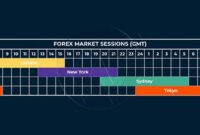Selecting a suitable forex broker is a critical step for successful currency trading. This process requires careful consideration of various factors, including regulatory compliance, trading conditions, available instruments, and customer support. A well-informed decision can significantly impact trading outcomes. This guide offers valuable insights for individuals seeking reputable brokerage services in New Zealand for 2024.
Regulation and Security
Prioritize brokers licensed and regulated by reputable authorities like the Financial Markets Authority (FMA) of New Zealand. This ensures client fund protection and adherence to strict operational guidelines.
Trading Platforms and Tools
Evaluate the offered trading platforms, including MetaTrader 4/5, cTrader, or proprietary platforms. Consider their user-friendliness, available charting tools, technical indicators, and mobile accessibility.
Spreads and Commissions
Compare the spreads and commissions charged by different brokers. Tight spreads and competitive commissions minimize trading costs and maximize potential profits.
Account Types and Minimum Deposits
Explore the different account types available, considering minimum deposit requirements, leverage options, and any additional features offered for specific account tiers.
Available Currency Pairs and Instruments
Ensure the broker offers a wide selection of currency pairs and other tradable instruments, such as commodities, indices, or cryptocurrencies, aligning with individual trading preferences.
Customer Support and Educational Resources
Assess the quality of customer support, including availability, responsiveness, and multilingual options. Look for brokers providing educational resources like webinars, tutorials, and market analysis.
Deposit and Withdrawal Methods
Examine the available deposit and withdrawal methods, considering processing times, associated fees, and convenience. Look for options that align with personal banking preferences.
Reputation and Reviews
Research the broker’s reputation within the industry by reading online reviews and seeking feedback from other traders. This can provide valuable insights into the broker’s reliability and service quality.
Demo Account Availability
Practice trading strategies and familiarize oneself with the platform using a demo account before committing real funds. This allows risk-free exploration of the broker’s offerings.
Tips for Selecting a Forex Broker
Tip 1: Verify regulatory compliance with the FMA for enhanced security.
Tip 2: Test the trading platform with a demo account to evaluate its suitability.
Tip 3: Compare spreads, commissions, and other fees across different brokers.
Tip 4: Read online reviews and testimonials from other traders.
Frequently Asked Questions
How do I find FMA-regulated brokers?
Consult the FMA’s official website for a list of licensed financial service providers in New Zealand.
What is a demo account?
A demo account simulates real market conditions with virtual funds, allowing risk-free practice.
What are spreads in forex trading?
Spreads represent the difference between the bid and ask price of a currency pair.
What is leverage?
Leverage allows traders to control larger positions with a smaller initial investment, magnifying potential profits and losses.
What are the risks of forex trading?
Forex trading involves substantial risk and can result in significant financial losses. It’s essential to understand the risks before investing.
How can I educate myself about forex trading?
Many online resources, including educational websites, webinars, and courses, are available for aspiring forex traders.
Choosing a forex broker is a crucial decision that requires careful research and consideration. By understanding the key factors outlined in this guide, individuals can make informed choices and select a broker that aligns with their trading needs and objectives in the New Zealand market for 2024.



